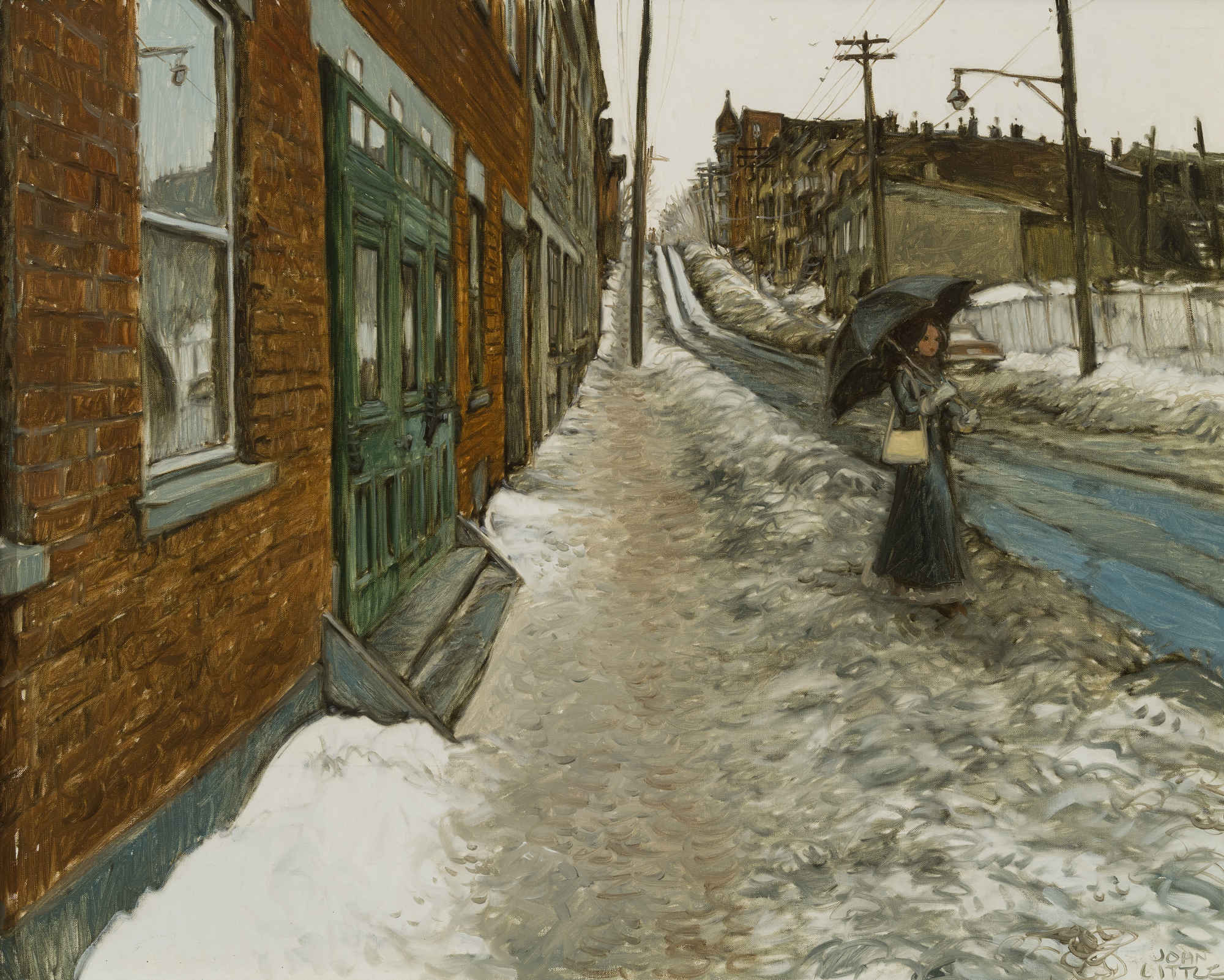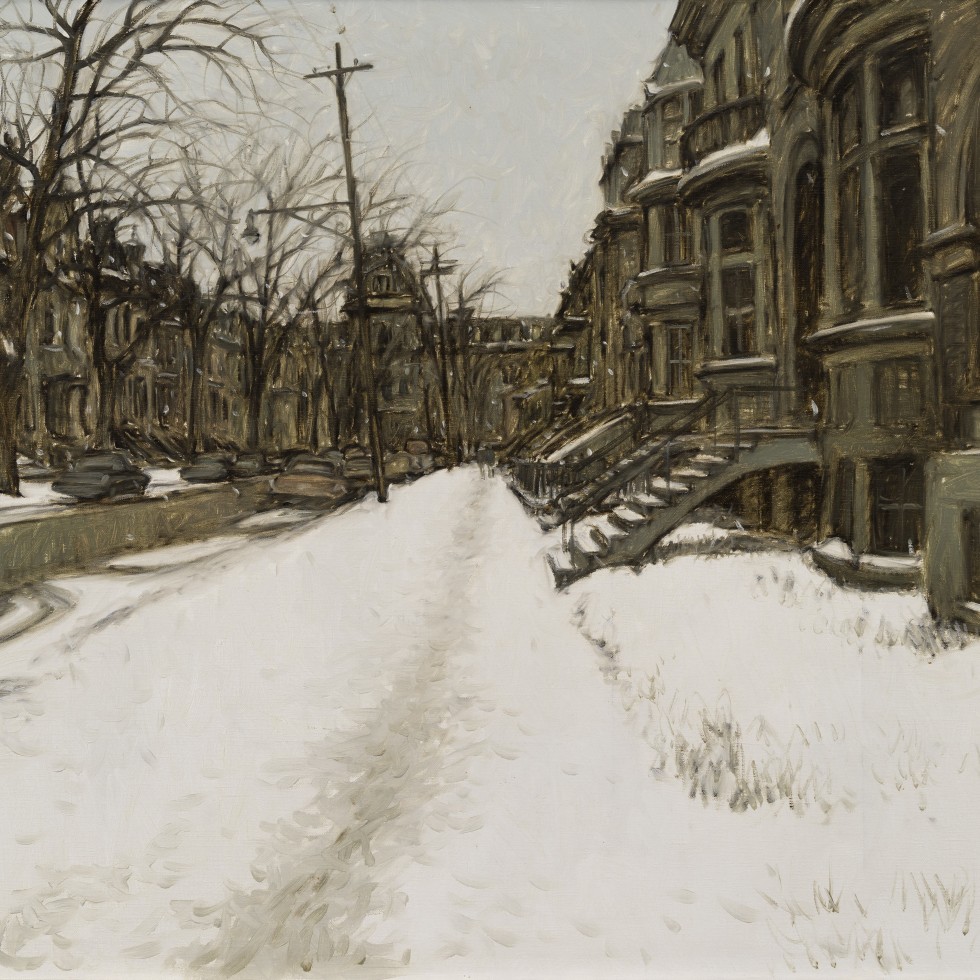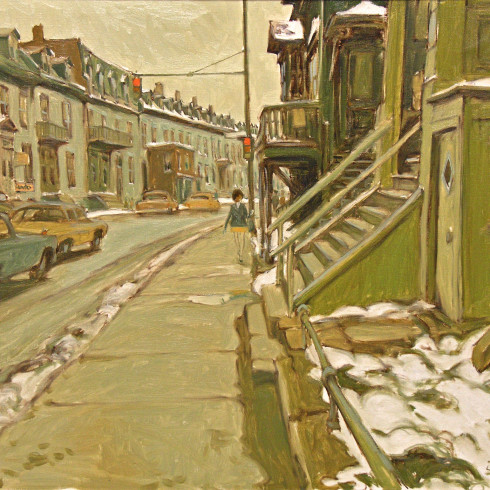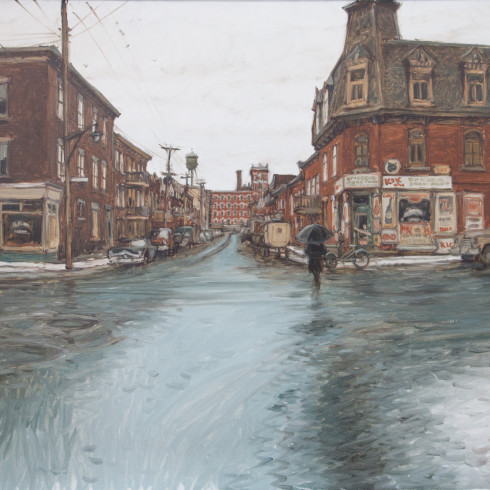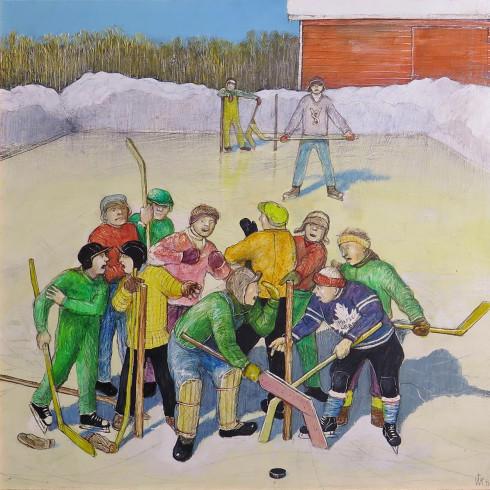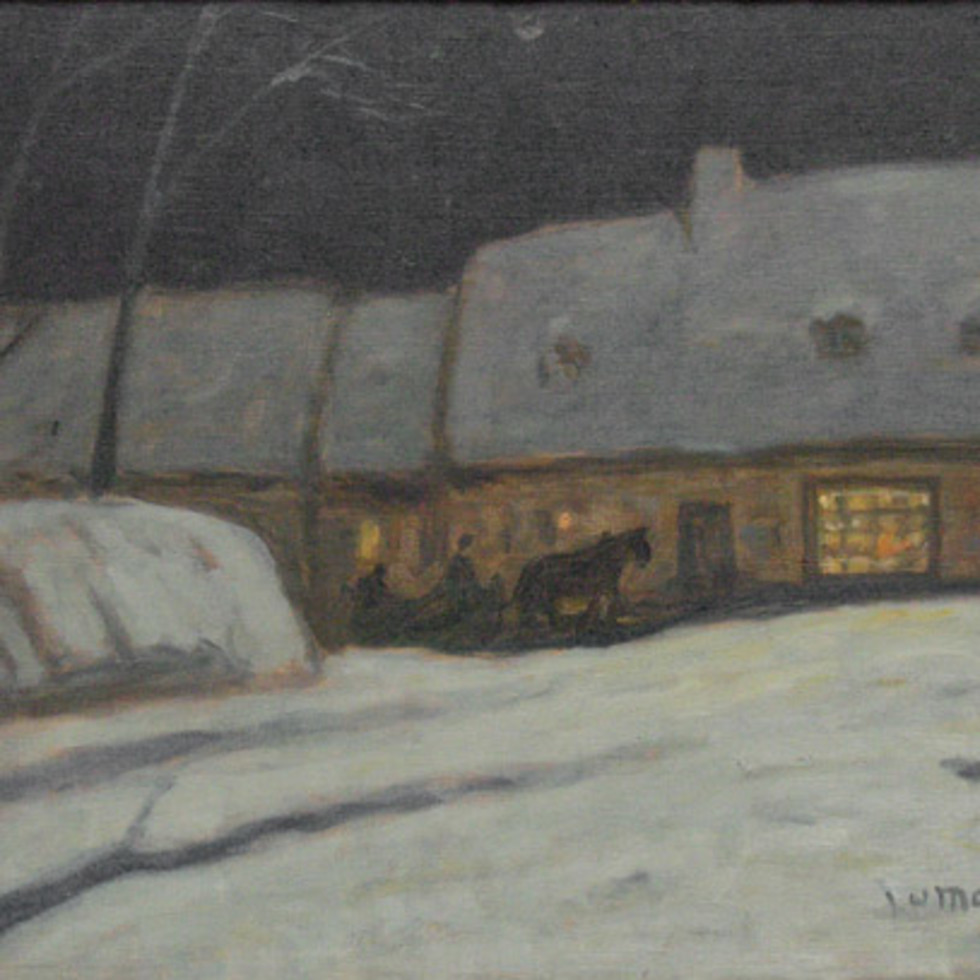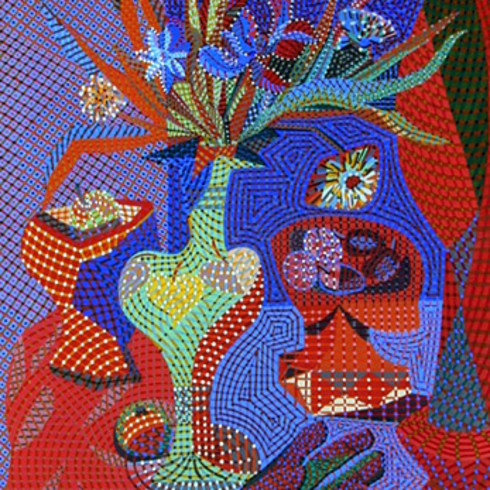Art canadien classique
Une journée humide - rue Panet d’autrefois, 1978
61 x 76.2 cm
Inscriptions
signed, ‘JOHN/ LITTLE’ (lower right); titled, signed and dated, ‘UNE JOURNÉE HUMIDE - RUE PANET d’autrefois JOHN / LITTLE 78’ (verso, upper horizontal stretcher); inscribed, “WILLIAM RICHARD ‘BILLY’ COX THIRD BASE Pittsburg - Brooklyn / NEWPORT PENNSYLVANIA AUG 29 1919 - MARCH 31 1978” (verso, left vertical stretcher); inscribed, ‘reproduction rights remain property of artist’ (verso, right vertical stretcher); inscribed, ‘78-74’ (lower horizontal stretcher)Provenance
Private collection, Montreal
Over the years, rue Panet has provided Little with a considerable amount of great material to paint. It is situated in what is today referred to as the Ville-Marie borough of Montreal, only a little bit east (technically north-east) of what one might call the 'downtown core'. It runs between René-Lévesque around the Radio-Canada Tower up to Sherbrooke Street at Lafontaine Park. The “bottom” of the street beginning quite close to the port suggests that it has its roots in blue collar residents. We have written elsewhere about Little’s foresight to paint what is known as then a 25-acre neighbourhood of Faubourg à m'lasse: 5000 people removed for the demolition to make way for the Radio-Canada, CBC tower and surrounding parking lots and what is now Route 136 (formerly Autoroute 720, known as the Ville-Marie Expressway). These developments changed the complexion of the neighbourhood physically as well as the nature of its citizens. Rue Panet is geographically today part of what is known as the Village.
As an aside, according to the City of Montreal, the name Panet was designated to the street at the beginning of the 19th Century. Although there have been numerous families named Panet who had lived on the street, it is unresolved as to whom precisely the street is named after.




